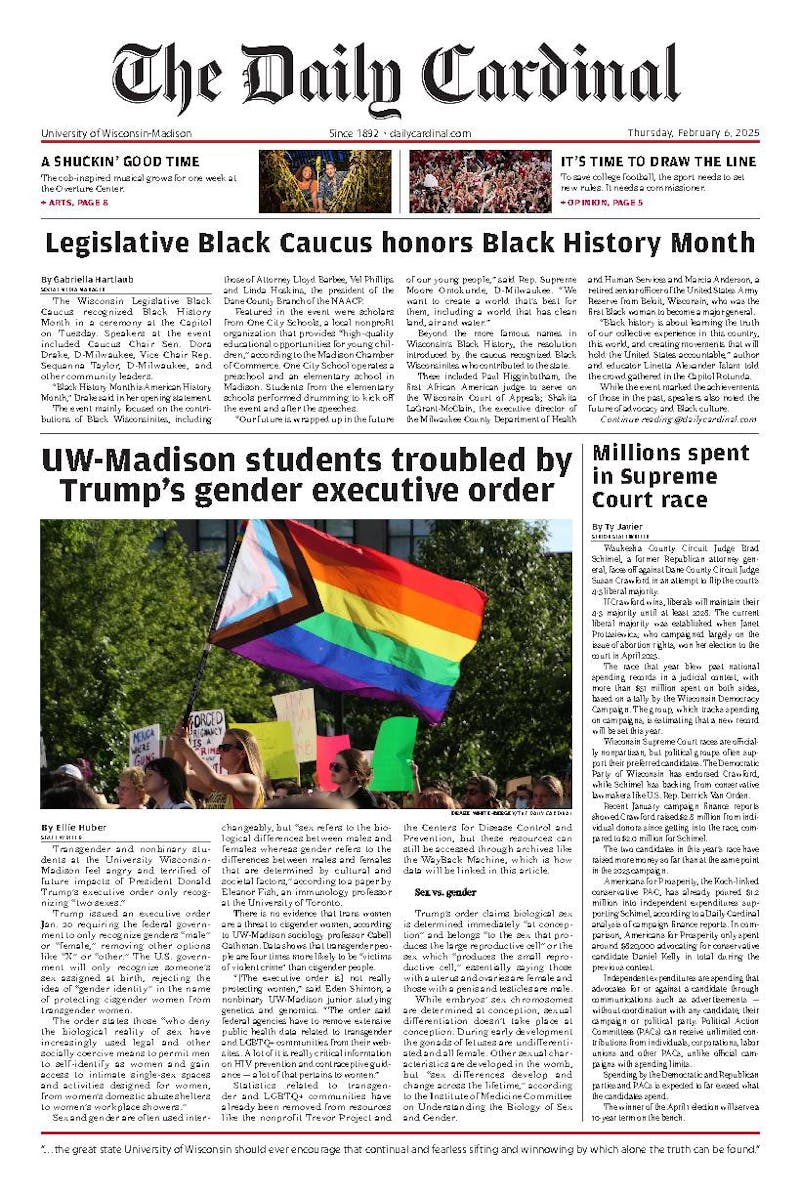Gov. Scott Walker picked a good time to introduce his weekly radio addresses. With low employment rates and his tenure still divisive, talking to the taxpayers is timely and important. Now that he has released an addressed titled ""Jobs,"" Walker can demonstrate his strong, common-sense understanding of what's wrong with the economy.
We already have a good idea about what Walker thinks. Tax increases and burdensome regulations under former Gov. Jim Doyle and Milwaukee Mayor Tom Barrett killed economic growth in Wisconsin. Job creators, uncertain about the future and their profit margins, stopped creating jobs, contributing to a dramatic rise in unemployment. Employers won't be willing to hire more people until the job climate is more business-friendly. It's a haunting story about how government overreach leads to a crisis, forcing us to tighten our belts and teaching us to let the magic of the free market work.
However, there is another story. The collapse of the housing bubble and the financial markets were a shock to the economy. People started holding more cash, but not enough money was created to allow people to buy all of the other things they wanted. Government spending helped these people out a bit, but this spending wasn't enough to make up for the demand shortfall people and businesses faced.
This paints a very different picture from Walker's tale. Rather than being burdened by taxes and regulations, businesses aren't creating jobs because customers aren't willing to buy their products. In this case, we shouldn't be worried about big government until we increase consumer demand and get people back to work.
Of course, these are just stories, and the real world is much more complicated than any story. That said, the two stories predict different things about the economy, and it should be possible to prove these predictions.
In his radio address, Walker claims that ""many … job creators said one of their biggest challenges was finding skilled workers to fill their open positions."" Since Walker doesn't give a number, it's hard to tell what this means. However, the National Federation of Independent Businesses has been tracking what business leaders have said are their ""single biggest"" problems for many years, and there is a clear verdict: Concerns about the quality of labor have gone down considerably during the recession, from roughly 15 percent to 5 percent.
Where did these worries go? The results shouldn't be surprising. Concerns about qualified workers have been replaced by concerns about sales, exactly as the second story predicted. To be fair, the surveys show that business leaders are also concerned about taxes and regulations, but these concerns have been stable over time. Business leaders haven't heard about the sudden overreach of the government in the economy, and they have always been worried about taxes.
Even without numbers, it's easy to see where Walker got his ""facts."" His administration has been soliciting advice from business leaders with an ""Open for Business"" survey. One of the questions asks businesses for the ""largest obstacle [they] encounter when trying to maintain business growth."" However, there's something curious about the survey choices: None of them are about sales. Unless Walker thinks that sales are never a problem for business expansion, this doesn't make sense, except as a way to prevent a politically unwelcome answers.
Walker added that ""the debate over the federal debt crippled the economy."" If this is implying that the national debt is worrying investors, then it's not true. Interest rates on Treasury bonds are very low, meaning that investors are still willing to hold government debt without expecting high returns. If the debt was forcing an imminent crisis, investors wouldn't want to be anywhere near it. In the real world, Treasury bonds have been strong as ever, even during the debate over defaulting on the debt. The debt debate may have been bad enough, but that's not all Walker said. According to him, this debate ""crippled"" the economy. Now, it's true that the rise in employment went from nearly zero to zero during that time, but that's hardly a sign of the economy being ""crippled."" It's more likely that Walker needed to blame something for the ongoing troubles and picked something recent. Needless to say, his economic world-view hasn't become more accurate yet.
This radio address shows us something disturbing about Walker. Not only does he not understand why the economy is in trouble, he also isn't trying very hard to find the answers. Given Walker's trouble understanding the economy, I don't hold my hopes up for Wisconsin's job creators.
Zach Thomae is a freshman majoring in computer science. Please send all feedback to opinion@dailycardinal.com






